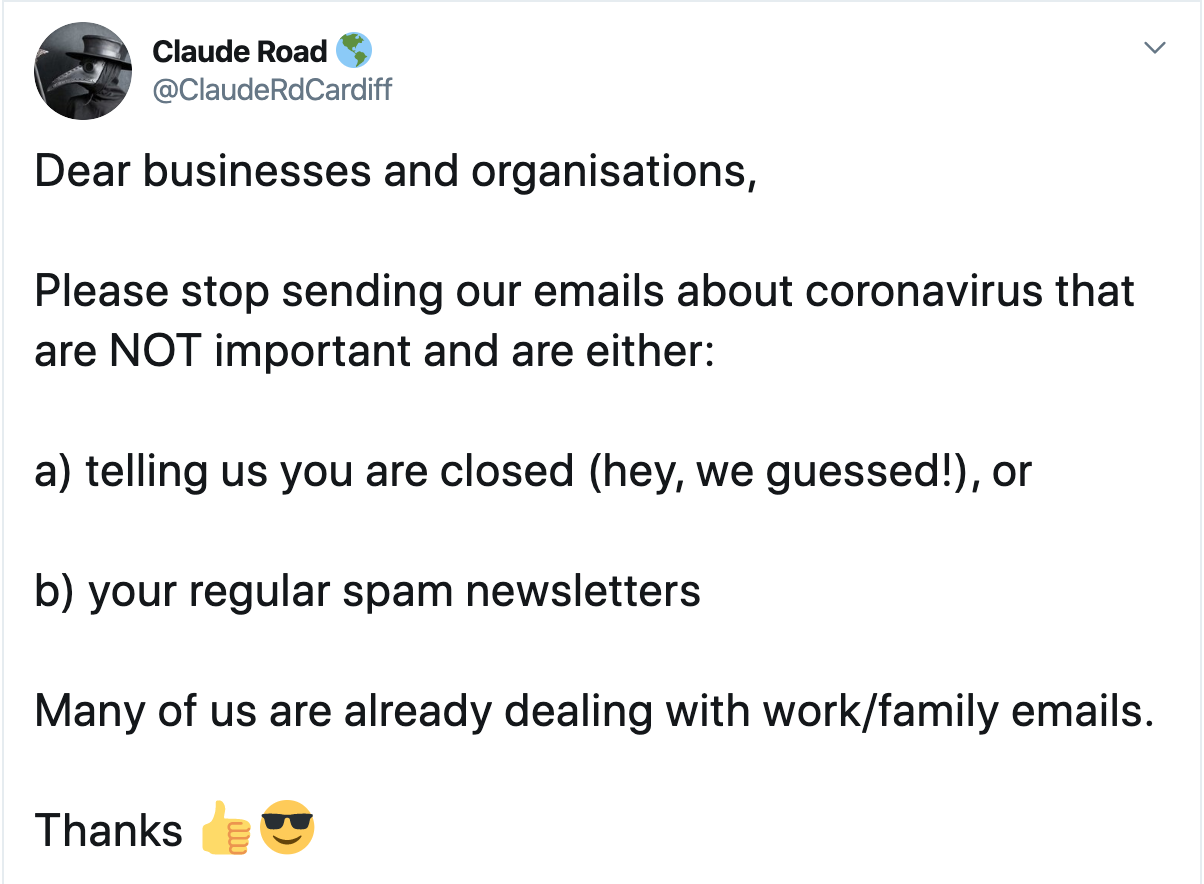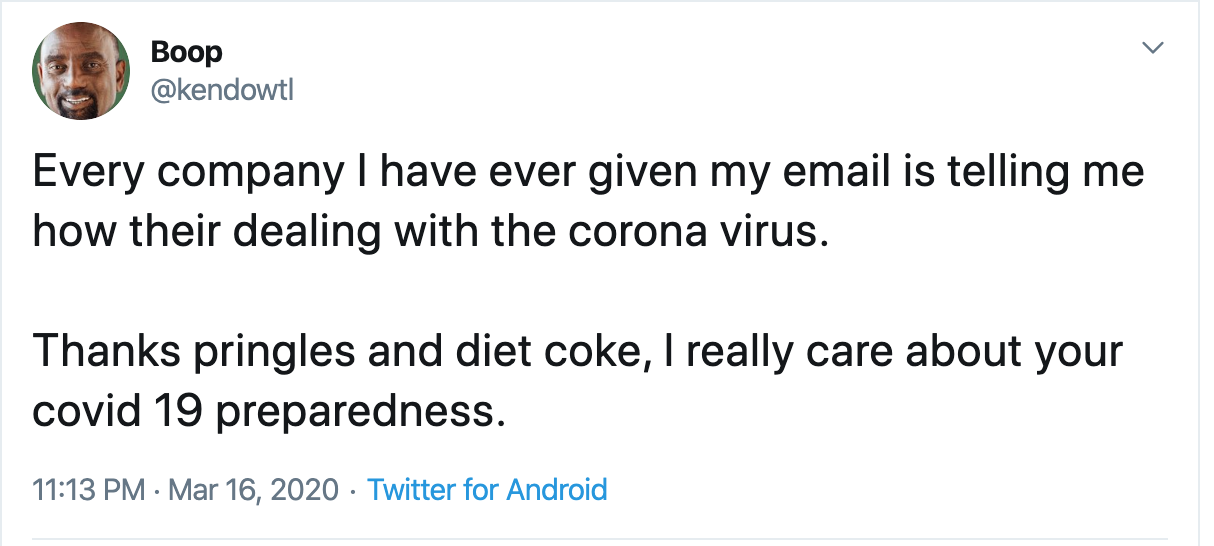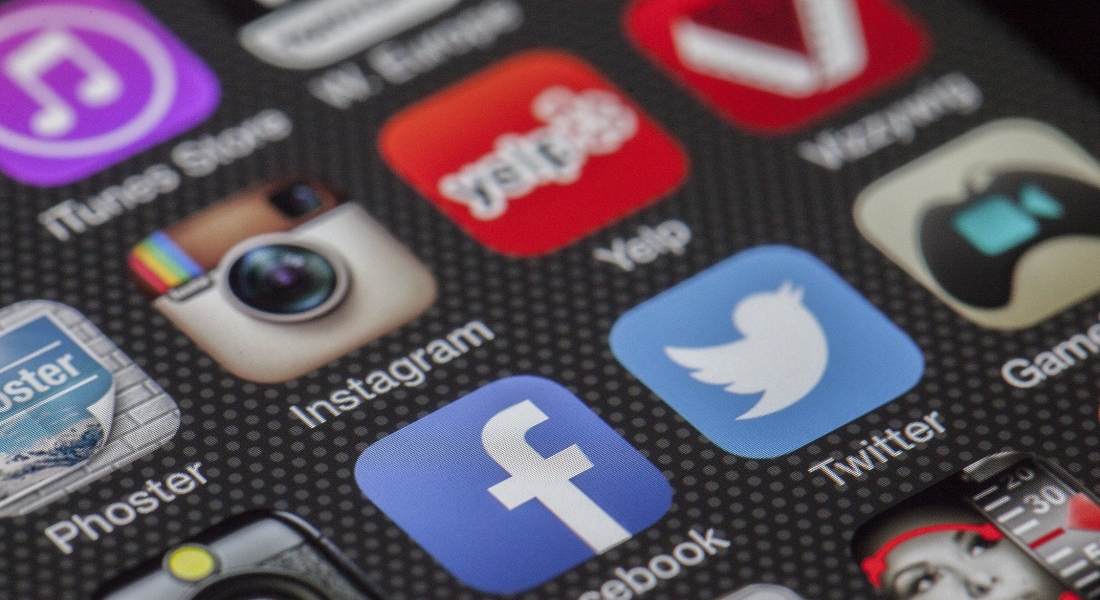S omething many businesses will be grappling with right now is how to get the tone right in anything they’re communicating. Is it appropriate to still be promoting products and services as the world shuts down? We’ve seen several companies continuing with business as usual across their marketing channels, ploughing on with their (presumably pre-scheduled) social media calendar or automated email marketing. But is keeping calm and carrying on the best approach? Or will this do more harm than good to your brand in the long run?
For some businesses (mainly in the B2C world) the coronavirus is being viewed as an opportunity. Whether it’s Disney+ streaming Frozen 2 in time for all the stay-at-home kids, Joe Wicks encouraging sign ups to his daily YouTube workouts or my local paint shop telling me that now is the time to paint my house, there are brands who will doubtlessly do well out of the entire UK population on lockdown. For B2B businesses in the tech sector, however, the situation is slightly different. Yes, some will offer products that can help people adapt to these new circumstances – the most obvious example being tech that facilitates home working. But where your product isn’t directly relevant to the new situation it’s important to strike the right note in anything you’re publishing to ensure you don’t come across as either self-serving or tone deaf.
Social
For social media, as with any other channel, the key is sensitivity and common sense. Make sure you’re reviewing any scheduled posts and delete anything in there that seems jarring. It goes without saying that you should avoid any posts about getting together in bars or restaurants, and unless you can offer any real value that will help people do their jobs effectively in the coming weeks it’s also probably best to avoid hard-sell tweets in general.
The media
A member of our team is now dedicated to researching coronavirus-related stories once a day that could be valuable for our clients to comment on. Yet, again, it’s essential to exercise sensitivity here. If you have something genuinely valuable to add to the conversation, then of course you should pitch it to journalists. But it’s a very fine line between appearing to be taking advantage of the situation and offering useful comment.
Email
I’ve seen many, many tweets in the past week from people laying into brands who have sent ‘coronavirus emails’:

Again, we’ve never been in this situation before so it’s difficult to say what will work and what people want to hear about this from brands, but there seems to be a consensus that emails from consumer brands telling us about their internal coronavirus policies seem unnecessary or even annoying. Unless you need to communicate to your customers about changing opening times or a change in their service provision, it’s probably best to consider if you really need to send that email.
Many businesses want to continue as normal, yet the current situation is anything but. What do you think is the best way to acknowledge this? Carry on regardless as if nothing’s happening, or go all-out corona across every channel?
We’re interested to hear your thoughts. Tweet us!
Share this:





